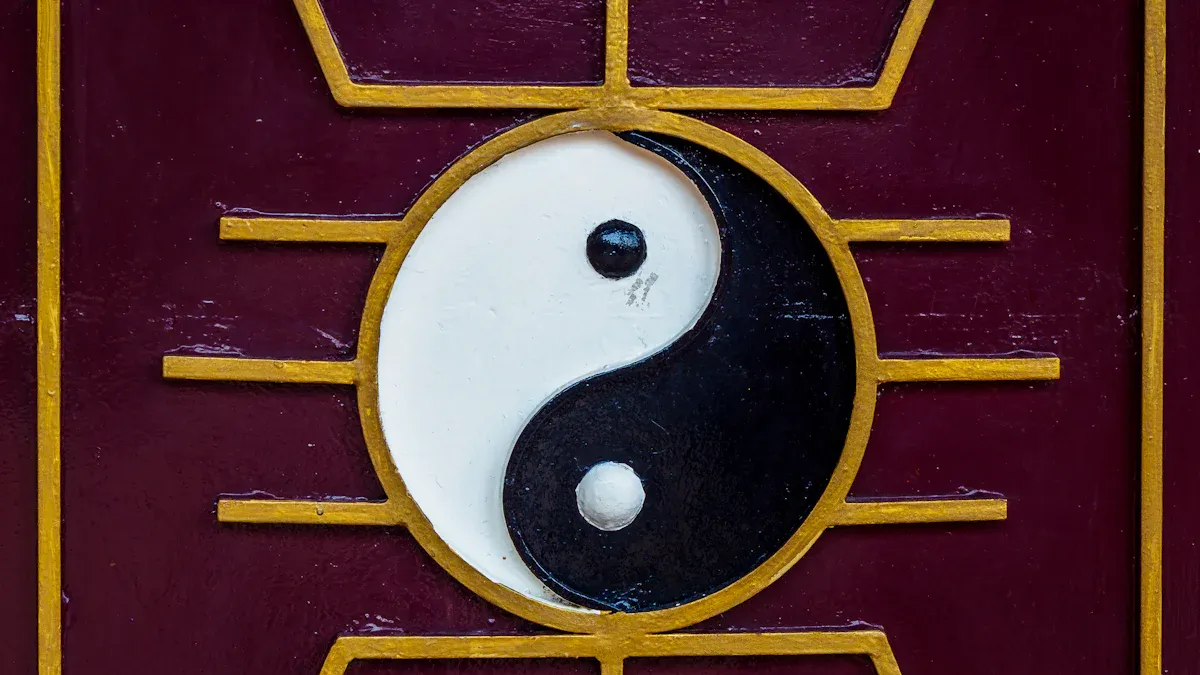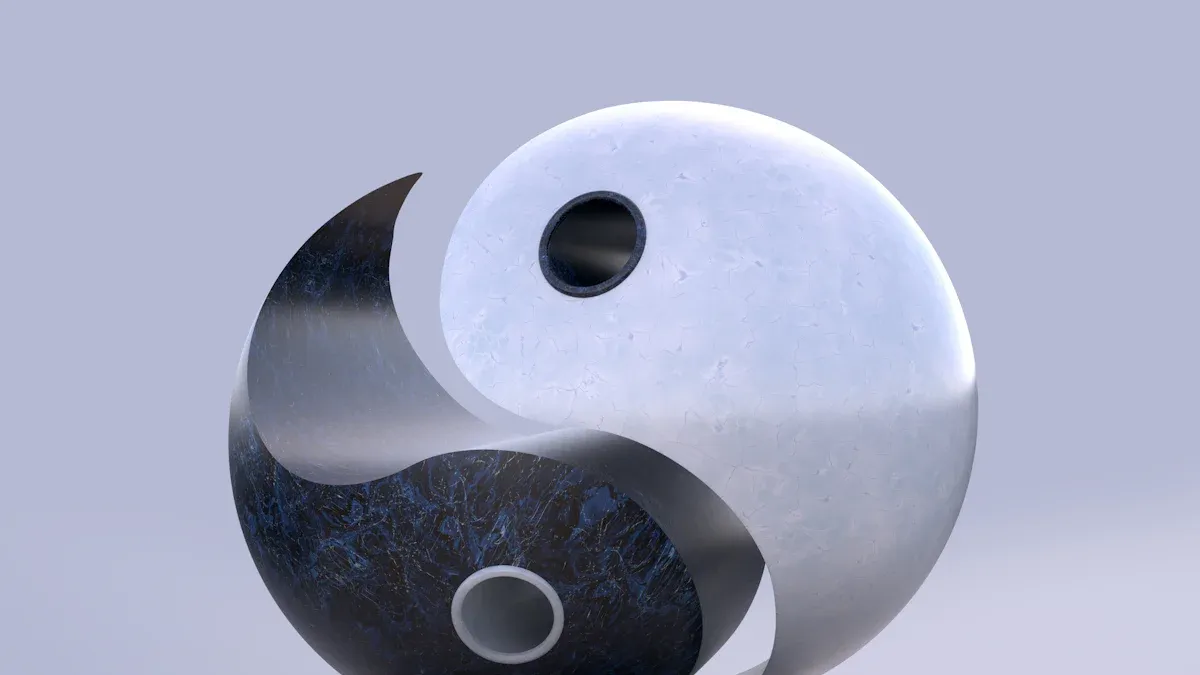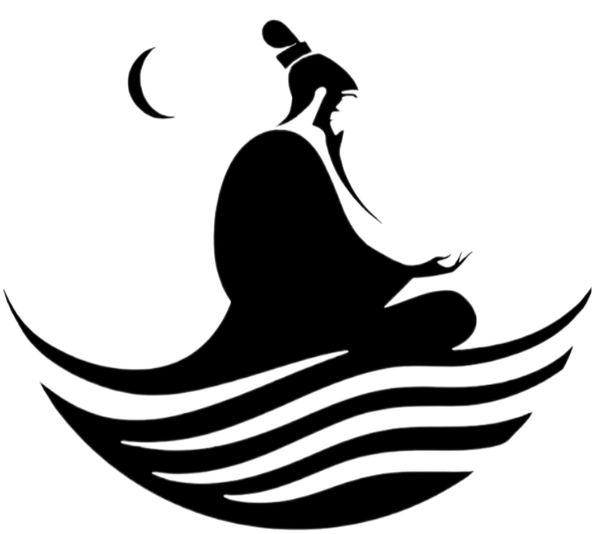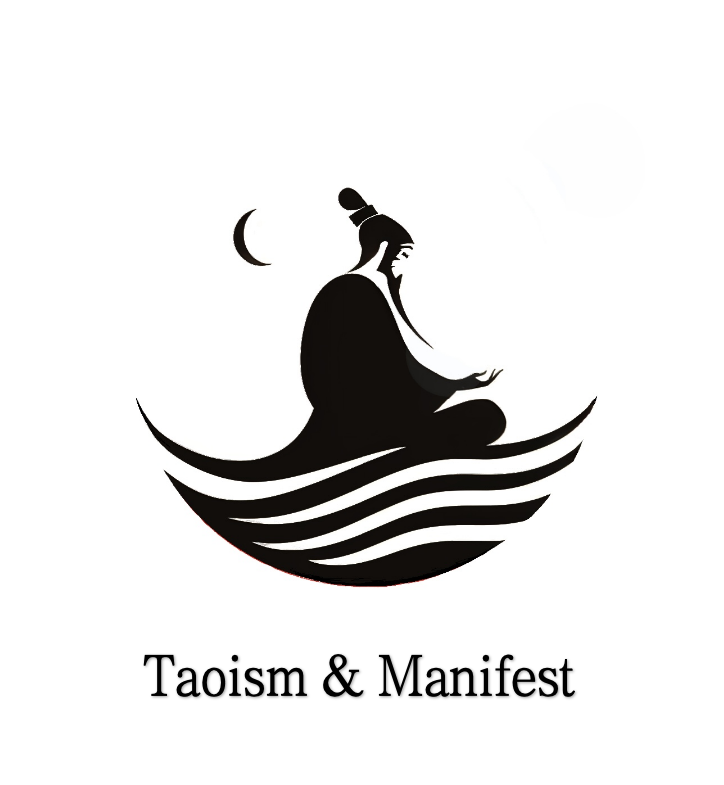
You can learn about Tao Principles with these ten ideas: Wu Wei, Yin and Yang, Tao (The Way), Simplicity, Serenity, Adaptation, Three Treasures, Meditation, Non-Attachment, and Virtue. These ideas help you understand Taoist philosophy. They also help you find balance and harmony. Many people use Taoist ideas by:
Accepting life the way it is
Using breathing exercises to feel calm
Smiling to find new chances
Being patient and staying quiet
Letting go of hopes to enjoy now
Researchers often use these sources when they study Taoist philosophy:
Author(s) |
Title |
Publication/Source |
Year |
|---|---|---|---|
Girardot, Norman J. |
Myth and Meaning in Early Taoism: The Theme of Chaos (hun-tun) |
University of California Press |
1983 |
Kohn, Livia (ed.) |
Taoist Meditation and Longevity Techniques |
University of Michigan, Center for Chinese Studies Publications |
1989 |
Maspero, Henri tr. |
Taoism and Chinese Religion |
University of Massachusetts Press |
1981 |
Robinet, Isabelle |
Metamorphosis and deliverance from the corpse in Taoism |
History of Religions |
1979 |
Saso, Michael |
Taoism and the Rite of Cosmic Renewal |
Washington State University Press |
1972 |
Sivin, N. |
On the word "Taoist" as a source of perplexity |
History of Religions |
1978 |
Welch, Holmes and Seidel, Anna (eds) |
Facets of Taoism |
Yale University Press |
1979 |
Key Takeaways
Wu Wei teaches you to act without forcing things. Trust how life moves to feel less stress and more peace.
Yin and Yang show why balance is important. Accept both good and bad to feel calm and happy.
Simplicity helps you see what is important. Clear your mind and space to feel lighter and happier.
Adaptation means being flexible. Accept change and learn from it to become stronger.
Practice compassion, frugality, and humility. These Three Treasures help you live a balanced and happy life.
Tao Principles: Wu Wei
Meaning
Wu Wei means “effortless action.” You act without forcing things. You let events unfold naturally. This idea comes from the Tao Te Ching. Wu Wei teaches you to move with the flow of life, not against it. You do not try to control every detail. Instead, you trust the natural order. When you practice Wu Wei, you find that many things work out better when you do not push too hard.
Importance
Wu Wei stands at the heart of Tao Principles. It helps you understand how to live in harmony with the world. When you follow Wu Wei, you avoid stress and struggle. You learn to accept what you cannot change. This mindset brings peace and balance. Many Taoist teachers say that Wu Wei leads to a happier and healthier life. You stop fighting the current and start moving with it.
“Nature does not hurry, yet everything is accomplished.” — Laozi, Tao Te Ching
Modern research shows that Wu Wei supports your mental health. Here are some ways Wu Wei helps your well-being:
You develop a non-striving attitude, which makes life feel easier.
Mindfulness and Wu Wei together help you enter flow states. These states boost your mood and performance.
Letting go of overthinking allows you to enjoy the present moment.
Application
You can use Wu Wei in daily life. For example, when you face a problem, pause and watch before acting. Let solutions come to you. If you play a sport, relax and trust your training. Your body will move smoothly. In conversations, listen more and speak less. You will notice better results. Wu Wei does not mean doing nothing. It means acting at the right time, in the right way. By following this Tao Principle, you align with the natural flow and find more ease in your actions.
Yin and Yang

Duality
Yin and Yang show you that everything in life has two sides. You see light and dark, hot and cold, active and quiet. These opposites do not fight each other. They work together. You can find Yin and Yang in nature and in your daily life. Look at the table below to see how duality appears in different places:
Aspect |
Description |
|---|---|
Nature |
The interaction of elements, seasons, and natural rhythms reflects Yin and Yang. |
Seasons |
The transition from Yang in summer to Yin in winter illustrates the cyclical nature of duality. |
Natural Rhythms |
Day (Yang) and night (Yin) exemplify the balance of opposites in nature. |
Human Relationships |
The balance of giving (Yang) and receiving (Yin) is crucial in partnerships and families. |
Partnership Dynamics |
Yin represents feminine qualities while Yang embodies masculine qualities, promoting harmony. |
You can see that Yin and Yang help you understand the world’s balance.
Harmony
Tao Principles teach you that harmony comes from balance. Yin and Yang need each other. When you let one side grow too strong, the other side will rise to restore balance. Taoist texts explain how you can achieve harmony:
Yin is characterized by receptiveness, which attracts and complements Yang.
The balance between Yin and Yang is essential, as one influences the other; when one becomes dominant, the other grows in response.
Taoism emphasizes the practice of Wu Wei (non-doing), which involves knowing when to act and when to allow things to unfold naturally, thus achieving harmony.
You can use these ideas to find peace in your life. You do not need to force things. You can let them happen in their own time.
Daily Life
You can use Yin and Yang every day. When you feel tired, rest (Yin). When you have energy, move (Yang). In friendships, listen (Yin) and share your thoughts (Yang). If you face a problem, look for both sides. Try to balance your actions. This helps you stay calm and healthy. Yin and Yang remind you that life works best when you keep things in balance.
Tao (The Way)
Definition
You see the word "Tao" in many Taoist texts. Tao means "The Way." It describes the path that everything in the universe follows. You can think of Tao as the natural flow of life. Tao is not a person or a god. Tao is the force that guides rivers, trees, animals, and people. You cannot see Tao, but you can feel it in the world around you. The Tao Te Ching says that Tao is the source of all things. When you learn about Tao, you start to notice patterns in nature and in your own life.
Tip: If you want to understand Tao, watch how water moves. Water follows the easiest path. It does not fight against rocks or hills. It finds a way around them.
Natural Order
Tao shows you that everything has a place and time. You see the sun rise and set. You watch plants grow and change with the seasons. These events happen because of the natural order. Tao Principles teach you to respect this order. When you follow Tao, you do not rush or force things. You let events happen when they are ready. You notice that life feels smoother when you trust the natural flow. You can use this idea in your daily routine. If you feel stressed, pause and look for the natural rhythm in your day.
Example |
How Tao Works in Nature |
|---|---|
River |
Flows around rocks |
Tree |
Grows toward sunlight |
Animal |
Moves with the seasons |
Human |
Breathes and rests naturally |
Acceptance
You learn acceptance from Tao. You do not try to change everything. You let go of control and trust the process. When you accept things as they are, you feel less stress. You find peace in your heart. Tao teaches you to welcome change and uncertainty. You see that life brings ups and downs. You do not fight against hard times. You learn from them and move forward. Acceptance helps you grow and stay strong. You can practice acceptance by taking deep breaths and reminding yourself that everything changes.
Simplicity
Essence
Simplicity stands as a core idea in Taoist philosophy. You see it in the way Taoist texts encourage you to live with less. Simplicity means choosing what matters most and letting go of what you do not need. When you follow simplicity, you focus on the basics. You avoid clutter in your mind and in your life. This Tao Principle teaches you to value clear thoughts, honest actions, and a peaceful heart.
“I have just three things to teach: simplicity, patience, compassion. These three are your greatest treasures.” — Laozi, Tao Te Ching
Benefits
You gain many benefits when you practice simplicity. Your mind feels lighter because you do not worry about too many things. You save time and energy by making fewer choices. Simplicity helps you see what is important. You feel less stress and more joy. You also find it easier to connect with others because you act with honesty and kindness. The table below shows some ways simplicity can help you:
Area of Life |
How Simplicity Helps |
|---|---|
Home |
Less clutter, more comfort |
School |
Clear focus, better learning |
Friendships |
Honest words, strong bonds |
Emotions |
Calm mind, less worry |
Practice
You can bring simplicity into your daily routine. Start by cleaning your room and keeping only what you use. Try to finish one task at a time instead of many at once. Speak with clear words and listen with care. When you feel overwhelmed, take a deep breath and ask yourself what really matters. You can also write a short list of your top three priorities each day. By following Tao Principles like simplicity, you create space for peace and happiness in your life.
Serenity
Calmness
Serenity means you feel calm even when life gets busy. You do not let small problems upset you. When you practice calmness, you slow down your thoughts. You notice your breath and your heartbeat. You can use simple actions to help you stay calm:
Take three deep breaths when you feel stressed.
Count to ten before you react to something upsetting.
Listen to soft music or sounds from nature.
Tip: Imagine a quiet lake. The water stays still even when the wind blows. You can become like that lake by practicing calmness every day.
Inner Peace
Inner peace comes from accepting yourself and your life. You do not fight your feelings. You let them come and go. When you have inner peace, you feel safe and strong inside. You do not need to prove anything to others. You trust yourself. Taoist philosophy teaches that true peace starts within you. You can find inner peace by:
Spending time alone in a quiet place.
Writing your thoughts in a journal.
Letting go of worries about the past or future.
Practice |
How It Helps You Find Peace |
|---|---|
Quiet reflection |
Clears your mind |
Journaling |
Helps you understand feelings |
Letting go |
Reduces stress and anxiety |
Mindfulness
Mindfulness means you pay attention to what is happening right now. You notice your thoughts, feelings, and surroundings. You do not judge them. You just observe. Mindfulness helps you enjoy each moment. You can practice mindfulness by:
Focusing on your breath for one minute.
Eating slowly and tasting each bite.
Watching the clouds move in the sky.
Remember: Mindfulness is not about stopping your thoughts. It is about noticing them and letting them pass. This Tao Principle helps you stay calm and peaceful, no matter what happens around you.
Adaptation
Life Cycles
You see cycles everywhere in nature. The sun rises and sets. Plants grow, bloom, and wither. Animals are born, live, and die. Taoist philosophy teaches you to notice these cycles. You learn that change is natural. Nothing stays the same forever. When you understand life cycles, you accept that every ending leads to a new beginning. This view helps you feel less afraid of change.
🌱 Tip: Watch how trees lose their leaves in fall and grow new ones in spring. This cycle shows you that loss and renewal are part of life.
Flexibility
Adaptation means you stay flexible. You do not break when life changes. Instead, you bend and adjust. Taoist texts often compare people to water. Water flows around rocks and finds a new path. You can do the same. When plans change, you look for new solutions. Flexibility helps you handle stress and surprises. You do not get stuck. You move forward.
Here are some ways to practice flexibility:
Try new activities, even if they feel strange.
Change your routine when needed.
Listen to others and consider their ideas.
Situation |
Flexible Response Example |
|---|---|
School project |
Work with a new partner |
Sports |
Play a different position |
Family plans |
Adjust when plans shift |
Growth
Growth happens when you adapt. You learn from new experiences. You become stronger and wiser. Taoist philosophy says you should welcome challenges. Each challenge helps you grow. You do not fear mistakes. You see them as lessons. When you adapt, you discover new skills and strengths.
“A tree that cannot bend will break in the wind.” — Taoist Proverb
You can track your growth by writing down what you learn each week. Celebrate small steps. Remember, growth is a journey, not a race. Adaptation helps you move through life with confidence and curiosity.
Three Treasures
The Three Treasures are very important in Taoist philosophy. They help you live a balanced and happy life. These treasures are Compassion, Frugality, and Humility. They help you become a better person and get along with others. Old Taoist books also talk about the Three Treasures as Jing, Qi, and Shen. These words show how your body, energy, and spirit work together.
Term |
Meaning |
|---|---|
Jing |
Nutritive essence, spirit, seed; refined yin in nature, lower abdominal cavity. |
Qi |
Vital energy, life force; breath, air, vapor; vitality, vigor, attitude, abdominal cavity. |
Shen |
Spirit; soul, mind; god, deity; supernatural being and yang in action, upper thoracic cavity. |
You can see that the Three Treasures affect your health and your choices. When you follow these Tao Principles, you bring harmony into your life.
Compassion
Compassion means you care about other people. You want to help them feel better. You listen when someone is sad. You say kind words or help with small things. Compassion helps you make friends and build trust. In Taoism, compassion keeps your heart soft and gentle.
Ways to grow compassion:
Smile at people you see.
Listen and do not interrupt.
Help someone with a simple job.
Forgive mistakes quickly.
Tip: If you feel upset, try to think about how others feel. This helps you be kind.
Frugality
Frugality teaches you to use only what you need. You do not waste things. You learn to like simple things. In Taoist life, frugality keeps you focused and clear. You learn to be thankful for what you have.
How to practice frugality:
Take care of your things.
Share what you do not use.
Pick quality instead of quantity.
Save energy and resources.
You will find that frugality brings calm and less worry.
Humility
Humility means you do not brag or act better than others. You know your strengths and weaknesses. Humility helps you learn from mistakes and get wiser. In Taoism, humility helps you stay open to new ideas.
Ways to show humility:
Say you do not know when you are unsure.
Thank people for helping you.
Listen more and talk less.
Cheer for other people’s wins.
Remember: Humility helps you learn and make friends easily.
Meditation

Mindfulness
Meditation helps you become more mindful. Mindfulness means you notice what happens in your mind and body. You pay attention to your breath, your thoughts, and your feelings. You do not judge them. You just watch them come and go. This practice comes from Taoist teachings. When you meditate, you learn to stay calm and focused. You can use mindfulness to handle stress at school or home. You also learn to enjoy small moments, like the taste of your food or the sound of birds.
Tip: Try to sit quietly for one minute. Close your eyes and listen to your breath. If your mind wanders, gently bring it back.
Self-Cultivation
Taoist meditation helps you grow as a person. This process is called self-cultivation. You work on your mind, body, and spirit. You learn to control your emotions. You also build inner strength. Many Taoist texts say that meditation helps you connect with your Qi, or life energy. When you meditate, you feel more balanced. You can face challenges with a clear mind. Self-cultivation makes you kinder and more patient.
Benefit |
How Meditation Helps You |
|---|---|
Calmness |
Reduces stress and worry |
Focus |
Improves attention |
Energy |
Boosts your Qi and vitality |
Kindness |
Grows patience and empathy |
Practice
You can start meditation with simple steps. Find a quiet place. Sit with your back straight. Rest your hands on your lap. Close your eyes if you feel comfortable. Breathe in slowly through your nose. Breathe out through your mouth. Focus on your breath. If thoughts come, notice them and let them go. Try this for five minutes each day.
Set a timer for your meditation.
Use a soft bell or gentle music if you like.
Practice at the same time each day for best results.
Remember: Meditation is a skill. You get better with practice. Even a few minutes can help you feel peaceful and strong.
Non-Attachment
Letting Go
Non-attachment means you learn to let go of things that hold you back. You do not cling to objects, people, or even your own ideas. When you practice letting go, you free your mind from worry. You stop feeling upset when things do not go your way. Taoist philosophy teaches that everything changes. You cannot control every outcome. You can only control your response.
Tip: When you feel stuck, take a deep breath and ask yourself, “Can I let this go?” Sometimes, just asking helps you move forward.
Freedom
When you let go, you find freedom. You do not let your happiness depend on what you own or what others think. You feel lighter because you carry less stress. Non-attachment helps you enjoy life as it is. You notice small joys, like a sunny day or a kind word. You do not worry about losing what you have. You trust that new things will come.
Here are some ways non-attachment brings freedom:
You try new things without fear.
You accept change more easily.
You feel less jealous or angry.
Balance
Non-attachment does not mean you stop caring. You still love your family and friends. You still work hard at school. The key is to care without holding on too tightly. You find balance between caring and letting go. This balance helps you stay calm and happy, even when life changes.
Practice |
How It Brings Balance |
|---|---|
Mindful breathing |
Calms your thoughts |
Gratitude |
Shifts focus to what you have |
Flexible goals |
Helps you adapt to new events |
Remember: Non-attachment lets you enjoy life fully. You learn to accept both good and bad times with an open heart.
Tao Principles: Virtue
Integrity
Integrity means you do what is right, even when no one watches. You keep your promises and tell the truth. In Taoist philosophy, integrity helps you build trust with others. When you act with integrity, people know they can count on you. You also feel proud of your choices. Integrity guides you to make decisions that match your values. If you make a mistake, you admit it and try to fix it. This honesty helps you grow stronger inside.
Note: Integrity is like a compass. It points you in the right direction, even when life feels confusing.
Ethics
Ethics show you how to treat others with respect and fairness. You learn to think about how your actions affect people around you. Taoist teachings say that good ethics help you live in harmony with the world. You can use ethics to solve problems and avoid hurting others. When you follow ethical rules, you create a safe and caring community. You also learn to forgive and understand different points of view.
Here are some examples of ethical actions:
Share with classmates who need help.
Stand up for someone who feels left out.
Tell the truth, even if it feels hard.
Ethical Value |
Example in Daily Life |
|---|---|
Honesty |
Admit when you make a mistake |
Kindness |
Help a friend in need |
Fairness |
Take turns during a game |
Daily Practice
You can practice virtue every day. Start with small actions. Hold the door for someone. Say thank you. Listen when others speak. These habits make you a better person. Tao Principles encourage you to reflect on your actions each night. Ask yourself, “Did I act with integrity today?” If you find areas to improve, try again tomorrow. Over time, these daily choices shape your character.
Tip: Keep a journal to track your good deeds. This helps you see your progress and reminds you to keep growing.
Tao Principles help you find balance and learn about yourself. They guide you to grow and understand your feelings. You start to notice why you do things. These ideas show you ways to get better and deal with change. Many people use Tao Principles every day and see good results:
You get to know yourself and feel stronger inside.
You learn to handle both compliments and negative feedback.
You look at change as a way to improve.
Pick one Tao Principle to try this week. See if it helps you feel more calm and sure of yourself each day.
FAQ
What is the main goal of Taoist philosophy?
You learn to live in harmony with nature and yourself. Taoist philosophy helps you find balance, peace, and happiness. You follow the natural flow of life instead of fighting against it.
How can you start practicing Tao Principles every day?
You can begin with small steps. Try deep breathing, keep your space simple, and show kindness. Notice your thoughts and let go of stress. Practice Wu Wei by acting calmly and not forcing things.
Why do Taoists value Wu Wei so much?
Wu Wei teaches you to act without struggle. You trust the natural order. This helps you avoid stress and make better choices. You find that life feels easier when you stop forcing outcomes.
Can you use Taoist ideas with other beliefs?
Yes, you can. Taoist principles work well with many beliefs. You do not need to change your religion. You can use Taoist ideas to improve your daily life and relationships.
What is Qi, and why is it important?
Qi means your life energy. You feel Qi when you breathe, move, or rest. Taoists believe Qi keeps you healthy and strong. You can build Qi through meditation, good food, and gentle exercise.






